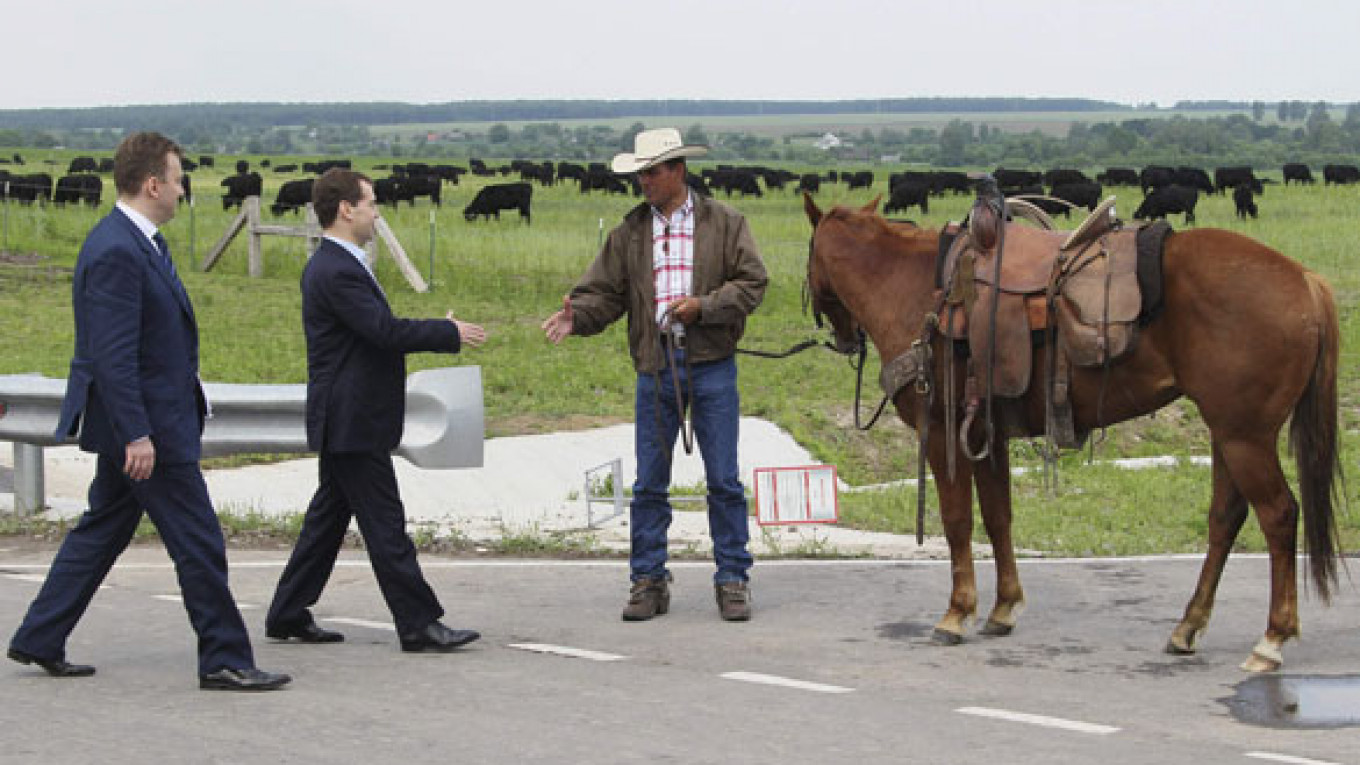Prime Minister Dmitry Medvedev paid a visit Wednesday to a Bryansk region farm that has imported cattle from the United States and also some American cowboys to help the Russians develop their struggling meat industry.
Medvedev chatted with a couple of the cowboys dressed in boots, jeans and checkered shirts, including one in a broad-brimmed black hat from the U.S. state of Idaho, who introduced the prime minister to his wife and young son.
Medvedev asked the American in English whether he had managed to learn to speak any Russian.
The man, who was not identified in television reports on the visit, said that other than "please" and "thank you," the most important words in his Russian vocabulary were those needed for taking care of the cattle: "open the gate" and "close the gate."
The farm in the southwestern Bryansk region has more than 7,000 head of Aberdeen Angus cattle, many of them imported from the United States. At least four U.S. cowboys work on the farm, where they use American horses to herd the black cattle.
The Miratorg holding company, which operates the farm Medvedev visited and others in the Bryansk region, said it imported 5,500 head of the black cattle from the United States in January. Two previous shipments within the past year came from Australia.
The company also imported 57 American Quarter Horses, the breed used on ranches throughout the United States.
During a meeting at the farm with the Bryansk governor and other officials, Medvedev said Russia was committed to reducing its dependence on imported beef.
Medvedev was forced to cut short the visit after a downpour and strong winds nearly knocked over the pavilion where he met with officials.
"I think we need to break off and move to another building," he said in televised remarks as the flapping of the tent grew so loud it drowned out his words.
(AP, Reuters)
A Message from The Moscow Times:
Dear readers,
We are facing unprecedented challenges. Russia's Prosecutor General's Office has designated The Moscow Times as an "undesirable" organization, criminalizing our work and putting our staff at risk of prosecution. This follows our earlier unjust labeling as a "foreign agent."
These actions are direct attempts to silence independent journalism in Russia. The authorities claim our work "discredits the decisions of the Russian leadership." We see things differently: we strive to provide accurate, unbiased reporting on Russia.
We, the journalists of The Moscow Times, refuse to be silenced. But to continue our work, we need your help.
Your support, no matter how small, makes a world of difference. If you can, please support us monthly starting from just $2. It's quick to set up, and every contribution makes a significant impact.
By supporting The Moscow Times, you're defending open, independent journalism in the face of repression. Thank you for standing with us.
Remind me later.






